Joining the Coast Guard demands exceptional physical and mental readiness, as missions often unfold in challenging and unpredictable environments.
To ensure all service members can perform at peak efficiency, strict medical standards are enforced.
Certain medications, often reflective of underlying health conditions, may disqualify applicants from service.
Therefore, knowing exactly what medications can result in an application being rejected is an absolute must.
Let us talk about it.
Table of Contents
TogglePsychiatric and Neurological Medications
The Coast Guard demands mental clarity, resilience, and decision-making abilities under pressure.
Another thing that should be pointed out is that buyers can be misled before they purchase a medication which can ruin their chances of being accepted in the Coast Guard.
Antidepressants
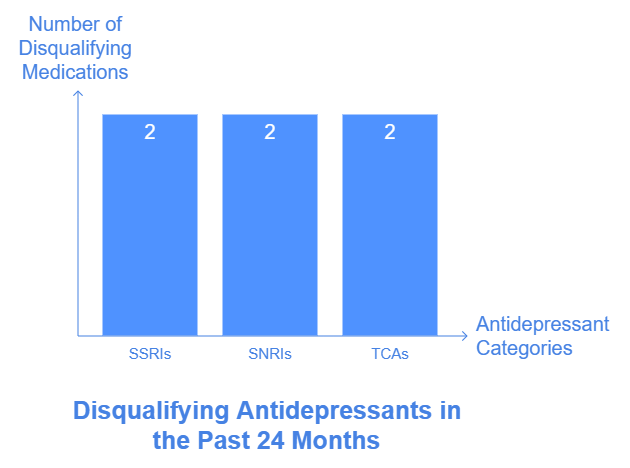
The following are disqualifying if used within the past 24 months:
- SSRIs (Selective Serotonin Reuptake Inhibitors):
- Fluoxetine
- Sertraline
- SNRIs (Serotonin-Norepinephrine Reuptake Inhibitors):
- Duloxetine
- Venlafaxine
- Tricyclic Antidepressants (TCAs):
- Amitriptyline
- Nortriptyline
ADHD Medications
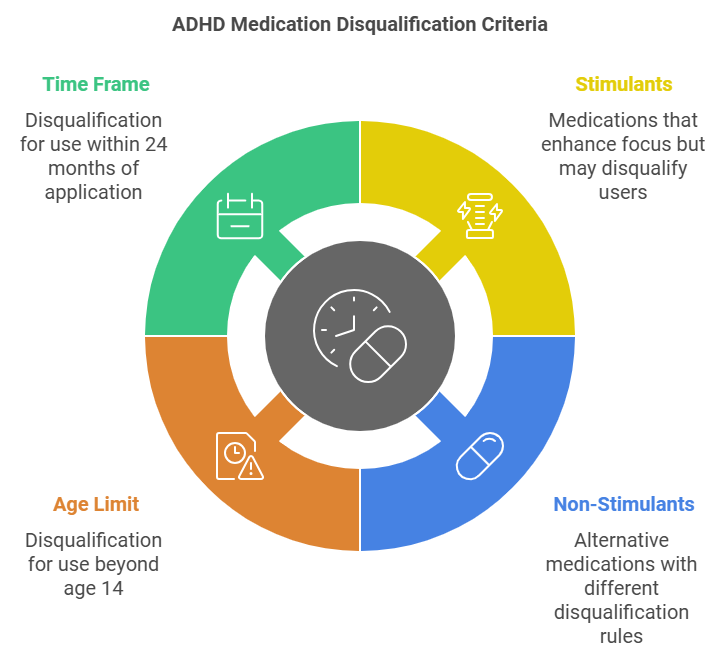
Usage beyond age 14 or within 24 months of application is disqualifying.
Examples include:
- Stimulants: Adderall, Ritalin, Vyvanse.
- Non-stimulant options: Atomoxetine (Strattera).
Antipsychotic Medications
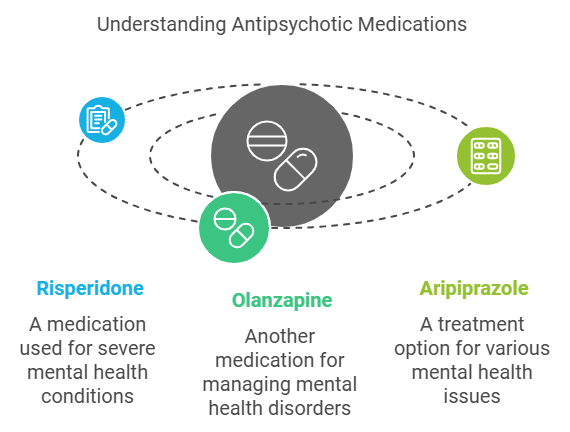
These are generally disqualifying: Risperidone, Olanzapine, Aripiprazole.
Anti-Seizure Medications
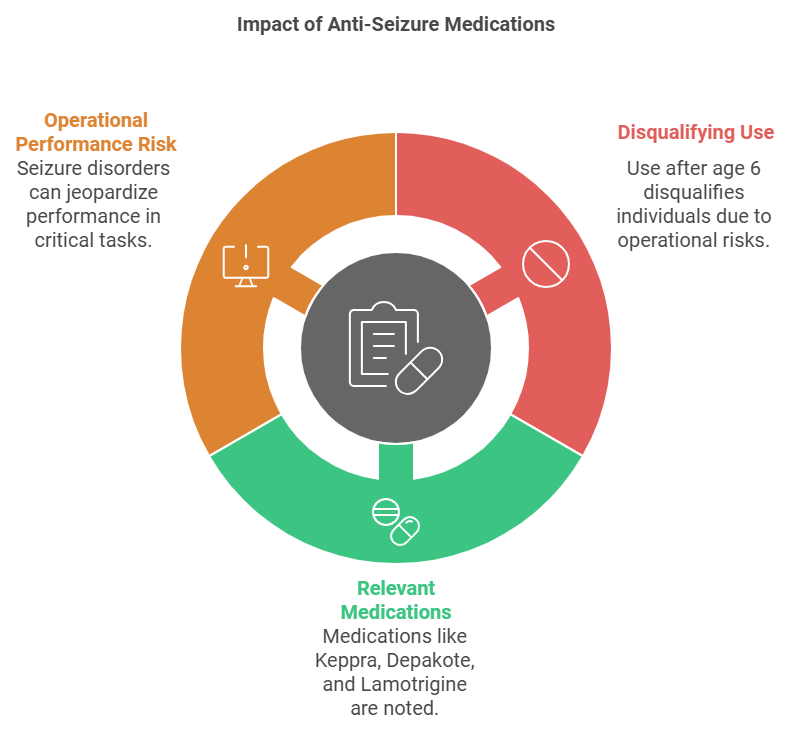
Use after age 6 is typically disqualifying, as such conditions can jeopardize operational performance.
Relevant medications include: Keppra, Depakote, Lamotrigine.
Respiratory Medications
Maintaining optimal respiratory health is critical for Coast Guard personnel operating in high-stress, unpredictable environments.
Chronic or recurrent respiratory issues can severely impair performance and compromise mission safety.
The use of asthma-related medications often serves as a marker for underlying airway conditions, such as hyper-responsiveness or chronic bronchitis.
While asthma itself does not automatically disqualify an applicant, the severity and treatment regimen are significant factors.
Medications that may be disqualifying:
Type
Examples
Indication/Concern
Inhaled Corticosteroids
Fluticasone, Budesonide
Chronic use for managing asthma or airway hyper-responsiveness.
Bronchodilators
Albuterol, Salmeterol
Indicates conditions requiring ongoing airway management, such as asthma or reactive airway disease.
Oral Corticosteroids
Methylprednisolone, Decadron
Long-term use for asthma or bronchitis signals severe or poorly controlled respiratory issues.
Prolonged reliance on these medications may reflect a degree of instability in the applicant’s respiratory health.
Allergy and Immune System Medications
In the rigorous environment of Coast Guard service, any medication that indicates severe allergic reactions or suppressed immune function is a potential disqualifier.
Medications of Concern:
- Epinephrine Auto-Injectors (e.g., EpiPen)
- Indicates severe allergies or risk of anaphylaxis.
- Life-threatening reactions could hinder mission readiness.
Immunosuppressants
- Methotrexate: Commonly used for autoimmune diseases.
- Tacrolimus: Prescribed for organ transplant management.
- Azathioprine: Treats chronic conditions like rheumatoid arthritis or lupus.
Key Concerns
These medications weaken the immune system, increasing susceptibility to infections, a significant liability in:
- Close quarters
- Group living conditions
- Remote deployments
Eligibility Criteria
Applicants using these medications are generally deemed unfit for service unless:
- They provide documented evidence of complete resolution of the underlying condition.
- They demonstrate stability and the absence of current medication use.
Endocrine and Metabolic Medications
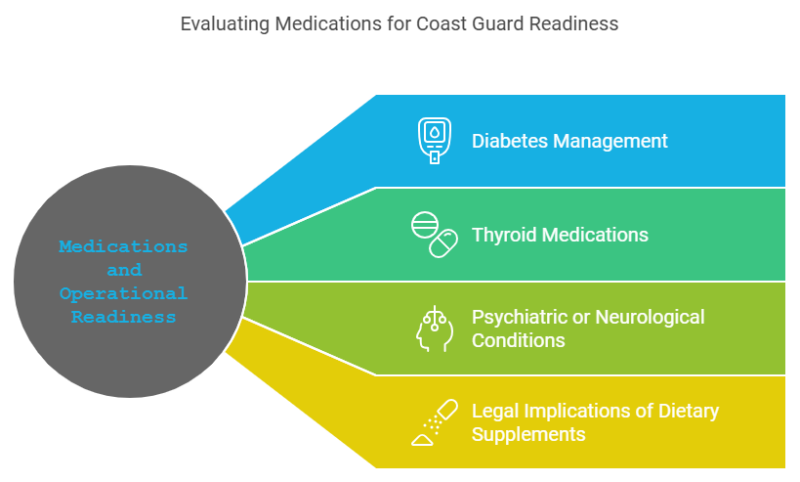
The ability to perform in high-stress, unpredictable environments requires metabolic systems to function without the need for constant medical management.
Medications for chronic endocrine and metabolic conditions, particularly those requiring regular monitoring or interventions, are evaluated rigorously to ensure they do not impair mission capability.
These indicate an underlying condition that requires precise control, which can be compromised during prolonged missions, emergency deployments, or situations where medical resources are limited.
Unmanaged or poorly controlled blood sugar levels could lead to severe complications, putting both the individual and their team at risk.
Thyroid medications, such as Levothyroxine, also raise concerns if they are prescribed for uncontrolled thyroid disorders.
An imbalance in thyroid function can lead to symptoms such as fatigue, temperature sensitivity, or cognitive impairment, all of which can hinder operational effectiveness.
While waivers may be considered for applicants with well-controlled thyroid conditions, stability over a prolonged period and thorough documentation are essential.
According to ConsumerShield, GOLO marketed its products as addressing “insulin resistance,” which plaintiffs argued implied treatment for diseases linked to insulin imbalance, violating federal dietary supplement laws. In January 2024, the case was dismissed, with no further class action lawsuits filed against GOLO as of the report.
Skin and Dermatological Medications
Medications for severe skin conditions are scrutinized in Coast Guard eligibility assessments, as they may indicate underlying health issues or present operational challenges.
Specific treatments can temporarily disqualify applicants, especially if they involve potent side effects or prolonged dependency.
Isotretinoin (commonly known as Accutane), prescribed for severe cases of acne, is one such medication.
Due to its significant side effects, including:
- Mood alterations
- Photosensitivity
- Potential liver impacts
- Disqualifying during treatment and for at least four weeks post-treatment.
- Side effects: mood changes, photosensitivity, and liver stress.
Chronic antibiotic use for persistent conditions like psoriasis or severe dermatitis is also a concern.
Prolonged treatment often signals ongoing medical management, which may not align with the physical demands and environmental exposures of Coast Guard service.
These conditions must be stable and controlled, and no longer require long-term medication use to meet eligibility standards.
Used for skin conditions such as:
- Severe dermatitis.
- Psoriasis.
- Disqualifying if ongoing or required for long-term management.
Pain and Orthopedic Medications
Pain management and orthopedic health are critical considerations for Coast Guard service due to the demanding physical requirements of the job.
Medications used to treat chronic pain or musculoskeletal issues are closely scrutinized to ensure that applicants can perform duties effectively and safely without dependence on medication.
Such side effects are incompatible with the operational readiness and reliability required in high-stress and physically demanding environments.
Frequent use of corticosteroid joint injections is another disqualifier. These injections, often prescribed for conditions like arthritis or recurring joint pain, can signal unresolved or chronic orthopedic issues that may compromise long-term fitness.
Service demands require applicants to demonstrate physical stability without relying on temporary or repeated interventions.
Blood and Cardiovascular Medications
Cardiovascular health is a critical factor for Coast Guard service, as the physical and mental demands of the role require peak fitness and endurance.
Medications used to manage heart-related conditions can signal underlying health risks that may compromise an individual’s ability to perform in high-stress, physically demanding environments.
Anticoagulants, such as Warfarin or Apixaban, are commonly prescribed for clot prevention.
These medications carry a significant risk of uncontrolled bleeding, particularly in scenarios where immediate medical intervention may not be available.
Heart rhythm management medications, including Amiodarone or Beta-blockers, are prescribed for conditions such as arrhythmias or other cardiac irregularities.
These treatments can indicate ongoing or unresolved heart issues, raising concerns about an applicant’s ability to withstand physical exertion or recover quickly from exertion-induced stress.
Evaluations and Waivers
The Department of Defense Medical Examination Review Board, or DoDMERB, is tasked with ensuring that every applicant meets the rigorous medical standards required for Coast Guard service.
A thorough review of medical histories identifies any disqualifying factors, including the use of specific medications.
To pursue a waiver, applicants must:
- Provide complete and up-to-date medical documentation, including records of diagnosis, treatment, and prognosis.
- Undergo additional evaluations, such as specialized medical tests or assessments by military-appointed healthcare professionals, to verify current health status.
- Submit a detailed explanation from their physician regarding the necessity of the medication and the resolution or management of the underlying condition.
Methodology
The methodology for compiling this report on medications that can disqualify individuals from Coast Guard service involved a structured and detailed approach to ensure accuracy and comprehensiveness.
- First, an extensive review of official military medical standards, particularly those outlined by the Department of Defense Medical Examination Review Board (DoDMERB), was conducted. This included analyzing publicly available guidelines and criteria related to medication usage and its implications for service eligibility.
- Next, secondary sources such as medical literature, official Coast Guard documentation, and expert opinions from healthcare professionals familiar with military requirements were reviewed to provide a deeper understanding of how specific medications can affect operational readiness and physical performance.
- The report also examined case studies and anecdotal evidence from previous applicants to highlight common patterns in medication-related disqualifications and waiver approvals.
- Medical databases were consulted to outline the pharmacological effects and potential risks associated with medications, such as those used for psychiatric, respiratory, cardiovascular, and endocrine conditions.
The aim was to correlate these risks with the demands of Coast Guard service, particularly in high-stress and unpredictable environments.
The Bottom Line
While some medications may initially disqualify applicants, understanding the criteria and exploring waiver options can provide pathways for those with well-managed or resolved conditions.
Transparency, thorough documentation, and proactive communication with medical reviewers are essential to navigating the process successfully.
Sources
- MedlinePlus – Fluoxetine
- National Library of Medicine – Nortriptyline
- MyClevelandClinic – Methylphenidate Tablets
- National Library of Medicine – Aripiprazole
- National Library of Medicine – Tacrolimus
- National Library of Medicine – Glipizide
- BTF-Thyroid – Coping with fatigue
- National Library of Medicine – The use of isotretinoin in acne
- National Library of Medicine – A review of antibiotics and psoriasis
- National Library of Medicine – Opioids
- National Library of Medicine – In brief: What are anticoagulants?
- NHS Inform – Beta-blockers
Related Posts:
- What Criminal Charges Can Disqualify You from…
- What to Know About Physical Fitness Requirements for…
- What Are the Basic Requirements to Get Into the…
- 20 Disqualifying Medical Conditions for Coast Guard Service
- Joining the Coast Guard Reserve - Requirements and Benefits
- How Coast Guard Salary Is Determined - Rank,…







